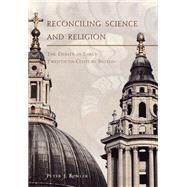Reconciling Science and Religion
, by Bowler, Peter J.- ISBN: 9780226068589 | 0226068587
- Cover: Hardcover
- Copyright: 10/1/2001
Although much has been written about the vigorous debates over science and religion in the Victorian era, little attention has been paid to their continuing importance in early twentieth-century Britain. Reconciling Science and Religion provides a comprehensive survey of the interplay between British science and religion from the late nineteenth century to World War II. Peter J. Bowler argues that unlike the United States, where a strong fundamentalist opposition to evolutionism developed in the 1920s (most famously expressed in the Scopes "monkey trial" of 1925), in Britain there was a concerted effort to reconcile science and religion. Intellectually conservative scientists championed the reconciliation and were supported by liberal theologians in the Free Churches and the Church of England, especially the Anglican "Modernists." Popular writers such as Julian Huxley and George Bernard Shaw sought to create a non-Christian religion similar in some respects to the Modernist position. Younger scientists and secularists--including Rationalists such as H. G. Wells and the Marxists--tended to oppose these efforts, as did conservative Christians, who saw the liberal position as a betrayal of the true spirit of their religion. With the increased social tensions of the 1930s, as the churches moved toward a neo-orthodoxy unfriendly to natural theology and biologists adopted the "Modern Synthesis" of genetics and evolutionary theory, the proposed reconciliation fell apart. Because the tensions between science and religion--and efforts at reconciling the two--are still very much with us today, Bowler's book will be important for everyone interested in these issues.






